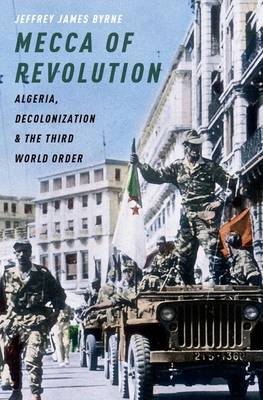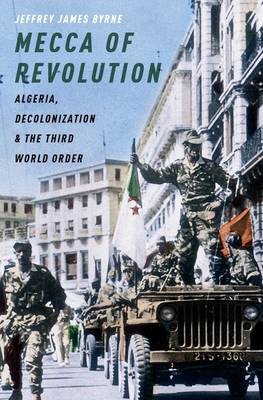
- Retrait gratuit dans votre magasin Club
- 7.000.000 titres dans notre catalogue
- Payer en toute sécurité
- Toujours un magasin près de chez vous
- Retrait gratuit dans votre magasin Club
- 7.000.0000 titres dans notre catalogue
- Payer en toute sécurité
- Toujours un magasin près de chez vous
209,45 €
+ 418 points
Format
Description
Mecca of Revolution traces the ideological and methodological evolution of the Algerian Revolution, showing how an anticolonial nationalist struggle culminated in independent Algeria's ambitious agenda to reshape not only its own society, but international society too. In this work, Jeffrey James Byrne first examines the changing politics and international strategies of the Algerian National Liberation Front (FLN) during its war with France, including the embrace of more encompassing visions of "decolonization" that necessitated socio-economic transformation on a global scale along Marxist/Leninist/Fanonist/Maoist/Guevarian lines. After independence, the Algerians played a leading role in Arab-African affairs as well as the far-reaching Third World project that challenged structural inequalities in the international system and the world economy, including initiatives such as the Non-Aligned Movement, the G77, and the Afro-Asian movement. At the same time, Algiers, nicknamed the "Mecca of Revolution," became a key nexus in an intercontinental transnational network of liberation movements, revolutionaries, and radical groups of various kinds. Drawing on unprecedented access to archival materials from the FLN, the independent Algerian state, and half a dozen other countries, Byrne narrates a postcolonial, or "South-South," international history. He situates dominant paradigms such as the Cold War in the larger context of decolonization and sheds new light on the relationships between the emergent elites of Africa, the Middle East, Asia, and Latin America. Mecca of Revolution shows how Third Worldism evolved from a subversive transnational phenomenon into a mode of elite cooperation that reinforced the authority of the post-colonial state. In so doing, the Third World movement played a key role in the construction of the totalizing international order of the late-twentieth century.
Spécifications
Parties prenantes
- Auteur(s) :
- Editeur:
Contenu
- Nombre de pages :
- 408
- Langue:
- Anglais
- Collection :
Caractéristiques
- EAN:
- 9780199899142
- Date de parution :
- 12-04-16
- Format:
- Livre relié
- Format numérique:
- Genaaid
- Dimensions :
- 160 mm x 236 mm
- Poids :
- 657 g

Les avis
Nous publions uniquement les avis qui respectent les conditions requises. Consultez nos conditions pour les avis.






